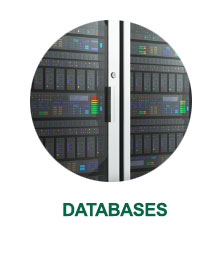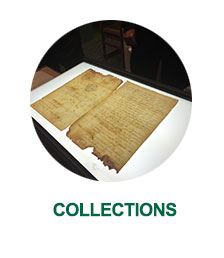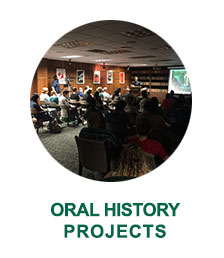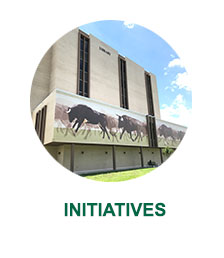More from Special Collections
Since the start of the twentieth century, genocide and mass violence have resulted in the deaths of tens of millions of civilians and reshaped political borders around the world. These events, persisting into contemporary times, continue to threaten global peace and security.
The Holocaust and Genocide Studies Collections formed with the vision to contribute to interdisciplinary global education and action to understand and prevent genocide through research, with particular emphasis on the Holocaust, Armenia, and the Great Lakes region of Africa. The collections encompass book and archival research materials that cross international boundaries to engage specialists, scholars, educators, students, analysts, and activists.
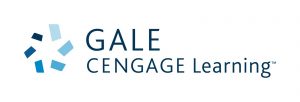 Testaments to the Holocaust offers access to the unique documents and rare printed materials of London’s Wiener Library, the world’s oldest Holocaust museum. Alfred Wiener fled Germany in 1933 and established his collection in London. The collection offers fully searchable personal accounts of life in Nazi Germany, along with photographs, propaganda materials such as school text books, limited circulation publications and rare serials. Through this online platform, researchers can research topics including domestic policies of Nazi Germany, Jewish life in Germany from 1933 to after the war, wartime propaganda, life in the concentration camps, hiding from Nazi oppression, emigration policies, and refugee life. To access the Testaments to the Holocaust on campus, click here »
To access the Testaments to the Holocaust from off-campus:
Testaments to the Holocaust offers access to the unique documents and rare printed materials of London’s Wiener Library, the world’s oldest Holocaust museum. Alfred Wiener fled Germany in 1933 and established his collection in London. The collection offers fully searchable personal accounts of life in Nazi Germany, along with photographs, propaganda materials such as school text books, limited circulation publications and rare serials. Through this online platform, researchers can research topics including domestic policies of Nazi Germany, Jewish life in Germany from 1933 to after the war, wartime propaganda, life in the concentration camps, hiding from Nazi oppression, emigration policies, and refugee life. To access the Testaments to the Holocaust on campus, click here »
To access the Testaments to the Holocaust from off-campus:
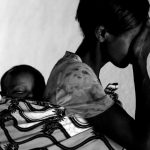 This collection contains testimonies that were handwritten in exercise books by students in Rwandan high schools between late 1999 and early 2000. Each testimony contains the first-hand account (in Kinyarwanda) of a child’s experiences from the beginning of the 1994 genocide in Rwanda until the child was rescued.
Click here to access the Rwandan Youth & Children’s Testimonies online »
This collection contains testimonies that were handwritten in exercise books by students in Rwandan high schools between late 1999 and early 2000. Each testimony contains the first-hand account (in Kinyarwanda) of a child’s experiences from the beginning of the 1994 genocide in Rwanda until the child was rescued.
Click here to access the Rwandan Youth & Children’s Testimonies online »
 The Holocaust Studies collections advance knowledge and teaching, allowing researchers and educators to apply lessons from the Holocaust to build empathy and understanding between cultures and giving voice to survivors and their children to end the effects of trauma, which often are passed from one generation to the next.
The Holocaust Studies collections advance knowledge and teaching, allowing researchers and educators to apply lessons from the Holocaust to build empathy and understanding between cultures and giving voice to survivors and their children to end the effects of trauma, which often are passed from one generation to the next.
 The Armenian Studies collections provides access to research materials in English, Armenian, and other languages, and supports researchers and educators in teaching about Armenian history and culture and enhancing intercultural dialogue about the shared experiences of the survivors of oppression and attempted annihilation. You can learn more here.
The Armenian Studies collections provides access to research materials in English, Armenian, and other languages, and supports researchers and educators in teaching about Armenian history and culture and enhancing intercultural dialogue about the shared experiences of the survivors of oppression and attempted annihilation. You can learn more here.
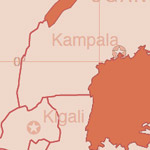 The African Great Lakes collection advances knowledge and teaching by encouraging researchers and educators to apply lessons from East Africa to build empathy and understanding between cultures and relate lessons from East Africa to current events in order to identify and prevent the forms of persecution that can lead ultimately to genocide.
The African Great Lakes collection advances knowledge and teaching by encouraging researchers and educators to apply lessons from East Africa to build empathy and understanding between cultures and relate lessons from East Africa to current events in order to identify and prevent the forms of persecution that can lead ultimately to genocide.
 In 2007, the University of South Florida and the Florida Holocaust Museum signed a formal affiliation agreement enabling cooperation in a number of areas. Chief among these are efforts to provide greater access to collections held at the Museum and USF Libraries. Access the Museum library’s online catalog.
In 2007, the University of South Florida and the Florida Holocaust Museum signed a formal affiliation agreement enabling cooperation in a number of areas. Chief among these are efforts to provide greater access to collections held at the Museum and USF Libraries. Access the Museum library’s online catalog.
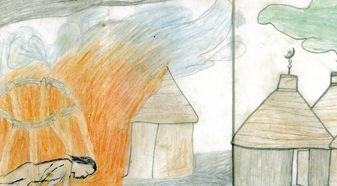 While on a fact-finding mission to eastern Chad in June and July 2007, Waging Peace researcher Anna Schmitt was told by Darfuri refugee women how their children had witnessed horrendous events when their villages were being attacked. Anna gave the children, aged 6 to 18, paper and pencils and asked them what their dreams were for the future and what their strongest memory was. In November 2007, the drawings were accepted by the International Criminal Court in the Hague as contextual evidence of the crimes committed in Darfur.
A selection of these drawings were exhibited at the USF Libraries Tampa in January of 2009. The original 500+ drawings comprise a collection to be donated by Waging Peace to the USF Libraries Holocaust & Genocide Studies Center upon completion of exhibitions worldwide.
Rebecca Tinsley, founder of Waging Peace and Network for Africa spoke at the USF Tampa Library as the USF Libraries Holocaust & Genocide Studies Center’s 2009 Lecture Series inaugural speaker.
Click here to access the Waging Peace Darfuri Children’s Drawings online »
While on a fact-finding mission to eastern Chad in June and July 2007, Waging Peace researcher Anna Schmitt was told by Darfuri refugee women how their children had witnessed horrendous events when their villages were being attacked. Anna gave the children, aged 6 to 18, paper and pencils and asked them what their dreams were for the future and what their strongest memory was. In November 2007, the drawings were accepted by the International Criminal Court in the Hague as contextual evidence of the crimes committed in Darfur.
A selection of these drawings were exhibited at the USF Libraries Tampa in January of 2009. The original 500+ drawings comprise a collection to be donated by Waging Peace to the USF Libraries Holocaust & Genocide Studies Center upon completion of exhibitions worldwide.
Rebecca Tinsley, founder of Waging Peace and Network for Africa spoke at the USF Tampa Library as the USF Libraries Holocaust & Genocide Studies Center’s 2009 Lecture Series inaugural speaker.
Click here to access the Waging Peace Darfuri Children’s Drawings online »

Testaments to the Holocaust (Gale Digital Collections)
 Testaments to the Holocaust offers access to the unique documents and rare printed materials of London’s Wiener Library, the world’s oldest Holocaust museum. Alfred Wiener fled Germany in 1933 and established his collection in London. The collection offers fully searchable personal accounts of life in Nazi Germany, along with photographs, propaganda materials such as school text books, limited circulation publications and rare serials. Through this online platform, researchers can research topics including domestic policies of Nazi Germany, Jewish life in Germany from 1933 to after the war, wartime propaganda, life in the concentration camps, hiding from Nazi oppression, emigration policies, and refugee life. To access the Testaments to the Holocaust on campus, click here »
To access the Testaments to the Holocaust from off-campus:
Testaments to the Holocaust offers access to the unique documents and rare printed materials of London’s Wiener Library, the world’s oldest Holocaust museum. Alfred Wiener fled Germany in 1933 and established his collection in London. The collection offers fully searchable personal accounts of life in Nazi Germany, along with photographs, propaganda materials such as school text books, limited circulation publications and rare serials. Through this online platform, researchers can research topics including domestic policies of Nazi Germany, Jewish life in Germany from 1933 to after the war, wartime propaganda, life in the concentration camps, hiding from Nazi oppression, emigration policies, and refugee life. To access the Testaments to the Holocaust on campus, click here »
To access the Testaments to the Holocaust from off-campus:
- Login using your USF Net ID at the top-left link on this page.
- Once logged in, under “Research Tools” in the menubar, click “Databases by title or subject.”
- Enter Testaments to the Holocaust and click GO.
Circulating Collections and Special Collections
The USF Libraries collections include several thousand items that support research on topics related to genocides worldwide, including Armenia, Africa, and German-occupied Europe. To search the Libraries catalogue, click here >> To search Special Collections’ archival and related collections, click here >>Oral History Collections
The USF Libraries Oral History Program provides access to interviews and testimonies that look to the past in order to understand the causes of mass violence, treat its effects on victims, and to help prevent future atrocities. Asaba Memorial Oral History Project Concentration Camp Liberators Oral History Project Holocaust Survivors Oral History ProjectRwandan Youth & Children’s Testimonies
 This collection contains testimonies that were handwritten in exercise books by students in Rwandan high schools between late 1999 and early 2000. Each testimony contains the first-hand account (in Kinyarwanda) of a child’s experiences from the beginning of the 1994 genocide in Rwanda until the child was rescued.
Click here to access the Rwandan Youth & Children’s Testimonies online »
This collection contains testimonies that were handwritten in exercise books by students in Rwandan high schools between late 1999 and early 2000. Each testimony contains the first-hand account (in Kinyarwanda) of a child’s experiences from the beginning of the 1994 genocide in Rwanda until the child was rescued.
Click here to access the Rwandan Youth & Children’s Testimonies online »
Holocaust Studies
 The Holocaust Studies collections advance knowledge and teaching, allowing researchers and educators to apply lessons from the Holocaust to build empathy and understanding between cultures and giving voice to survivors and their children to end the effects of trauma, which often are passed from one generation to the next.
The Holocaust Studies collections advance knowledge and teaching, allowing researchers and educators to apply lessons from the Holocaust to build empathy and understanding between cultures and giving voice to survivors and their children to end the effects of trauma, which often are passed from one generation to the next.
Armenian Studies
 The Armenian Studies collections provides access to research materials in English, Armenian, and other languages, and supports researchers and educators in teaching about Armenian history and culture and enhancing intercultural dialogue about the shared experiences of the survivors of oppression and attempted annihilation. You can learn more here.
The Armenian Studies collections provides access to research materials in English, Armenian, and other languages, and supports researchers and educators in teaching about Armenian history and culture and enhancing intercultural dialogue about the shared experiences of the survivors of oppression and attempted annihilation. You can learn more here.
The African Great Lakes Region
 The African Great Lakes collection advances knowledge and teaching by encouraging researchers and educators to apply lessons from East Africa to build empathy and understanding between cultures and relate lessons from East Africa to current events in order to identify and prevent the forms of persecution that can lead ultimately to genocide.
The African Great Lakes collection advances knowledge and teaching by encouraging researchers and educators to apply lessons from East Africa to build empathy and understanding between cultures and relate lessons from East Africa to current events in order to identify and prevent the forms of persecution that can lead ultimately to genocide.
Florida Holocaust Museum
 In 2007, the University of South Florida and the Florida Holocaust Museum signed a formal affiliation agreement enabling cooperation in a number of areas. Chief among these are efforts to provide greater access to collections held at the Museum and USF Libraries. Access the Museum library’s online catalog.
In 2007, the University of South Florida and the Florida Holocaust Museum signed a formal affiliation agreement enabling cooperation in a number of areas. Chief among these are efforts to provide greater access to collections held at the Museum and USF Libraries. Access the Museum library’s online catalog.
Waging Peace
The USF Libraries Holocaust & Genocide Studies Center has formalized a partnership with UK-based non-governmental organizations Waging Peace, and their sister (aid) agency, Network for Africa. Waging Peace campaigns against genocide and systematic human rights abuses, with a particular focus on Africa.Drawings by Darfuri and Chadian Refugee Children
 While on a fact-finding mission to eastern Chad in June and July 2007, Waging Peace researcher Anna Schmitt was told by Darfuri refugee women how their children had witnessed horrendous events when their villages were being attacked. Anna gave the children, aged 6 to 18, paper and pencils and asked them what their dreams were for the future and what their strongest memory was. In November 2007, the drawings were accepted by the International Criminal Court in the Hague as contextual evidence of the crimes committed in Darfur.
A selection of these drawings were exhibited at the USF Libraries Tampa in January of 2009. The original 500+ drawings comprise a collection to be donated by Waging Peace to the USF Libraries Holocaust & Genocide Studies Center upon completion of exhibitions worldwide.
Rebecca Tinsley, founder of Waging Peace and Network for Africa spoke at the USF Tampa Library as the USF Libraries Holocaust & Genocide Studies Center’s 2009 Lecture Series inaugural speaker.
Click here to access the Waging Peace Darfuri Children’s Drawings online »
While on a fact-finding mission to eastern Chad in June and July 2007, Waging Peace researcher Anna Schmitt was told by Darfuri refugee women how their children had witnessed horrendous events when their villages were being attacked. Anna gave the children, aged 6 to 18, paper and pencils and asked them what their dreams were for the future and what their strongest memory was. In November 2007, the drawings were accepted by the International Criminal Court in the Hague as contextual evidence of the crimes committed in Darfur.
A selection of these drawings were exhibited at the USF Libraries Tampa in January of 2009. The original 500+ drawings comprise a collection to be donated by Waging Peace to the USF Libraries Holocaust & Genocide Studies Center upon completion of exhibitions worldwide.
Rebecca Tinsley, founder of Waging Peace and Network for Africa spoke at the USF Tampa Library as the USF Libraries Holocaust & Genocide Studies Center’s 2009 Lecture Series inaugural speaker.
Click here to access the Waging Peace Darfuri Children’s Drawings online »
Center for Conflict Management at National University of Rwanda
The need to widely disseminate research on genocide by scholars in Rwanda has been a challenge due to limited circulation of the two printed journals that are published by the Center for Conflict Management at National University of Rwanda. In May 2012, University of South Florida Libraries signed a Memoranda of Understanding to host the Journal of African Conflicts and Peace Studies and Peace and Conflict Management Review so that these journals could be published in the online open access model. National University of Rwanda was established in 1963. Most of the research in Rwanda regarding the Rwandan genocide is conducted by researchers at the National University of Rwanda’s Center for Conflict Management (CCM).
